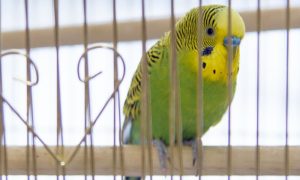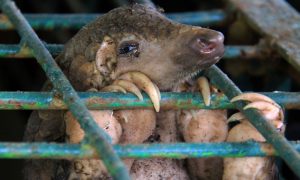Following pressure from the White Coat Waste Project (WCW) and a congressional bipartisan coalition, the Department of Veterans Affairs (VA) has announced the first-ever federal policy supporting the adoption of ex-research animals.
The newly penned Adoption of Research Animals policy requires the VA to record details about the animals’ health and behavior, and instructs research programs that use dogs to provide leash training and other forms of socialization so when the animals are retired, they are conditioned to being around people and other animals.
“Given our successful campaigns to end wasteful government experiments on dogs, monkeys and other animals, we want to ensure that the survivors can be freed,” said Justin Goodman, vice president of advocacy and public policy at WCW. “Taxpayers bought the dogs, cats and other animals locked in VA’s nightmarish labs, and we want Uncle Sam to give them back.”
“In the last year, my colleagues and I have made remarkable progress towards eliminating painful and unnecessary dog testing at the VA,” said Congresswoman Dina Titus (D-NV). “I am pleased to see that the VA has now released the first-ever federal policy encouraging the adoption of dogs and other animals when they’re no longer needed in research.”
In the newly released policy, the VA admits that they have “an ethical obligation” to place healthy, socialized animals with adoptive families.
Last year, WCW exposed the Stokes Veterans Affairs Medical Center (VAMC) in Cleveland, Ohio, for lying to reporters, telling them that it had adopted out dogs when in fact the animals had been killed.
Stokes VAMC bought 30 hounds to use in their shockingly inhumane experiments between 2016-2017, costing $38,000 in taxpayer money. In spite of telling reporters that all five dogs obtained in March 2017 were adopted out, WCW obtained records that showed three of the dogs were killed. In fact, 27 of the 30 dogs bought by the VAMC died in experiments.
While medical testing on animals is cruel and needless to begin with — especially given modern technology that is both humane and more reliable than vivisection — the very least medical researchers can do is ensure that, once the horrific experiments end, the dogs can live out the rest of their lives in peace. May this be the first of many policies promoting the adoption of animals used for research.






